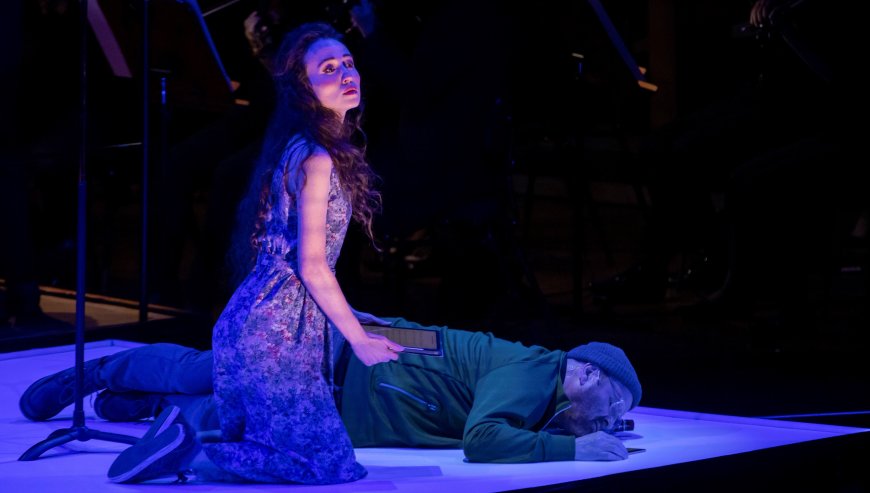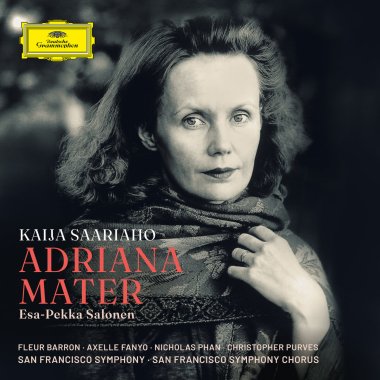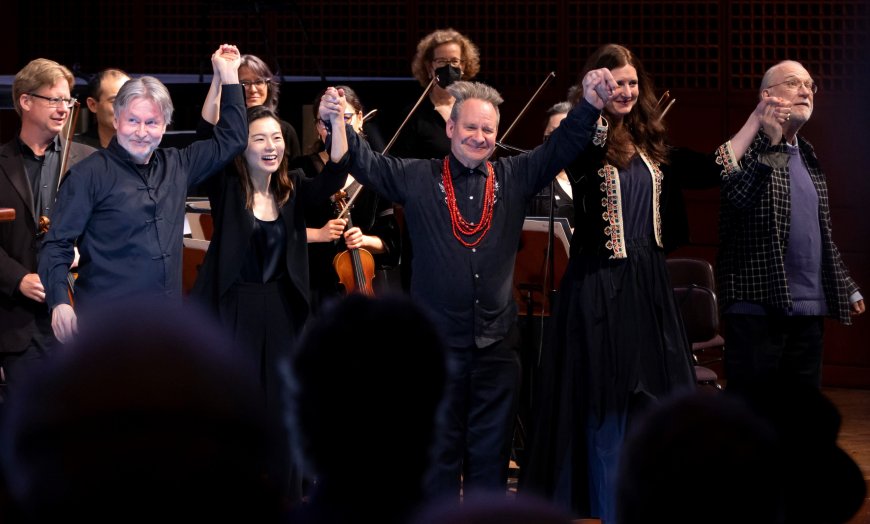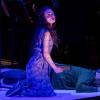
When all is said and done, the world-premiere recording of Kaija Saariaho’s second opera, Adriana Mater, may be the most enduring legacy of Esa-Pekka Salonen’s stint as San Francisco Symphony music director. Arriving in the final months of the conductor’s tenure, this album from Deutsche Grammophon is only Salonen’s second physical CD with the orchestra, but it serves as a fitting capstone to his regrettably brief term.
The release is also important because of the circumstances under which it was made. The live recording is taken from June 2023 performances at Davies Symphony Hall — and it was in the middle of rehearsals that month when the sad news broke of Saariaho’s death at age 70 from an aggressive glioblastoma.

Adriana Mater was a partial departure for the composer in that her usual electronics-infused dreamscapes threaten to become nightmares in service to the disturbing storyline. In Act 1, Adriana is a young woman during wartime (which war is immaterial) who has a stalker, the soldier Tsargo, who rapes her. Seventeen years later, the issue of that crime, Yonas, seeks revenge against an older, now-blind, down-on-his-luck Tsargo. Yonas tries to summon the will to kill his biological father, but he can’t go through with it. This comforts Adriana to no end, for she realizes that her son inherited more of her kind nature than his father’s violence.
As heard here, Saariaho’s score makes the evolution of the plot and personalities of the characters wonderfully clear. Parts of Act 1 have an unusually tough edge for this composer. Violent orchestrations suggest the rape and sounds of war, with shuddering pauses heightening the horror. Yet underneath the turbulence and dissonances, Saariaho’s dreamlike signatures endure — as well they should, because there are several dream sequences in the opera.
The score becomes louder and even more complex in Act 2 before entering a magical stage of stasis with bells chiming and strings trilling softly. The last scene, and the longest at 30 minutes, is mostly an extraordinary half-hallucinogenic quartet in which each of the four characters is left alone to deliver thoughtful monologues on the central regretful theme of “I should have.” Ultimately, the orchestra assumes command and ends the opera peacefully, though a bit of unresolved tension remains.
A lifelong friend of Saariaho’s, Salonen fulfills his mission as her foremost champion with his searing, insightful conducting, and the orchestra sounds genuinely involved and invested in the project. The superb SF Symphony Chorus becomes a presiding Greek chorus, contributing to the texture of the orchestrations.

I’m not crazy about some of the singing — as Adriana, mezzo-soprano Fleur Barron produces a harsh timbre at times, as does soprano Axelle Fanyo as Adriana’s sister, Refka. But baritone Christopher Purves as Tsargo makes a credible transition from malevolent young man to tired old man, and tenor Nicholas Phan is a suitably agitated Yonas.
The CD’s packaging is surprisingly modest; no printed libretto is provided, but the booklet provides a link to a digital copy.




